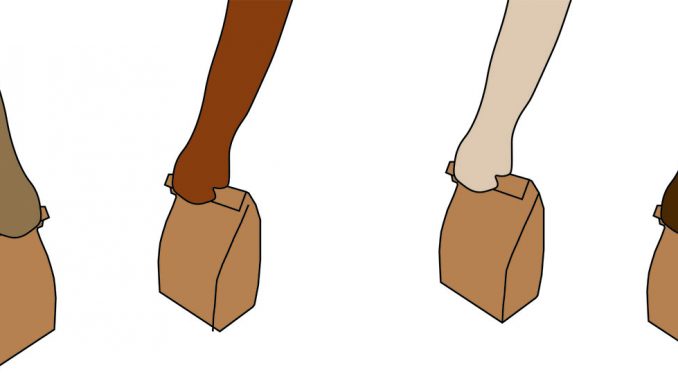
Presenting the “paper bag test” to a packed room in Anderson Hall, Bisi Oyelola detailed how, a few decades ago, some people were denied employment if their complexions were darker than a paper bag.
Oyelola, a senior political science major and president of the on-campus organization Hosting Our Own Talks, spoke about colorism, which dates as far back as slavery and colonization. She added the skin-lightening industry is worth $10 billion globally and skin-lightening cream is one of the top-selling products in Africa.
Colorism, among many other topics, was discussed Friday night at “The Bodily Mind,” a conversation about how societal and interpersonal pressures can affect mental health and body image.
Global Women’s Dialogue, a Temple group dedicated to creating safe spaces for students to discuss topics affecting the student body and women across the world, hosted the event.
Donna-Marie Peters, a sociology professor, founded Global Women’s Dialogue in 2008 and has hosted an event every semester since. What started as a group for students of Middle Eastern backgrounds, primarily women, who were reluctant to open up about certain topics like race, expanded itself to all university students, Peters said.
“Why don’t we have our own group?” Peters asked the women who joined her. “We can get together and discuss these topics without outsiders listening to us that we don’t know or people we feel don’t understand us criticizing us.”
Friday’s two-hour event combined poetry, educational lessons and intimate discussions, which were meant to “build bridges to understanding,” Peters said.
“We don’t want to shut people down,” Peters said. “We want this space to be a brave, open and safe space to say whatever you want to say with our hearts open to each other, accepting different perspectives and acknowledging that we’re one large global Temple community of greater understanding.”
In weekly discussions throughout the semester, Global Women’s Dialogue chooses topics like women in leadership, de-escalating microaggressions and intersectionality to discuss at bi-annual events on Main Campus.
These events join students from varying racial, ethnic and religious backgrounds. Students share poetry, teach and participate in educational lessons and break up into groups to exchange thoughts on the event’s theme.
Juliana Amo, a senior social work major, has been going to Global Women’s Dialogue events for a year after being introduced to the organization by a friend.
“Since I’ve been here, it’s been amazing,” Amo said. “There’s no restriction, and it’s an open space to talk about anything, whatever is on your mind.”
During a past discussion on microaggressions, the group talked about how women have to be more on guard for offensive language or looks, she said.
Gender-based microaggressions can include sexual objectification, restrictive gender roles and environmental invalidations like unequal pay. These can have negative effects on a person’s standard of living physical and psychological health — like body image and body dissatisfaction — according to a report by the University of New Hampshire.
“To be here and talk to individuals who I work with or have class with about these issues is so important,” Oyelola said. “I get to see you in a different perspective, my peers in a different perspective and men in my class in a different perspective.”
“Events like these on campus are so important and really crucial to the heartbeat of what Temple’s about,” Oyelola said.


Be the first to comment